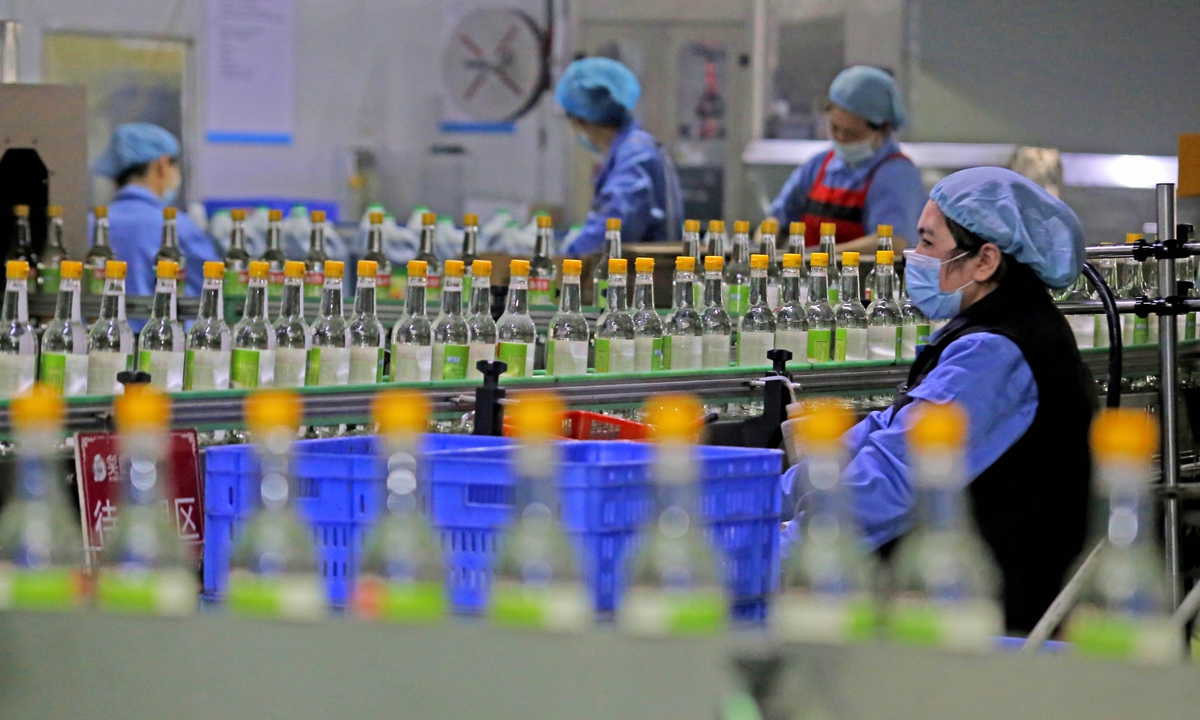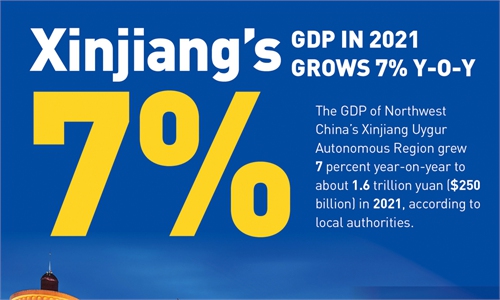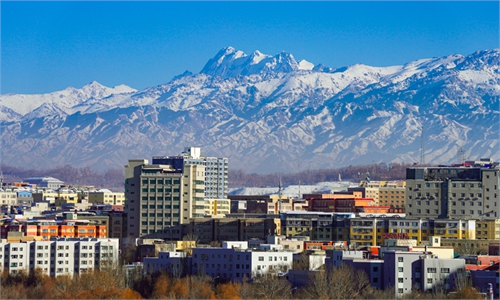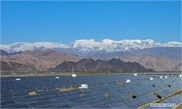
Workers at a food processing company in Northwest China's Xinjiang Uygur Autonomous Region on February 13, 2022. More than 300 staff had returned to work after the Spring Festival holidays as of February 11, with production in full swing. The firm's product shipments increased by 20 percent year-on-year in January.Photo: cnsphoto
Nearly a dozen centrally administered state-owned enterprises (SOEs) and financial institutions have signed 611.71 billion yuan ($96.49 billion) worth of deals in Northwest China's Xinjiang Uygur Autonomous Region, aiming to boost local economic development.
The central SOEs will play a leading and guiding role to improve the investment environment in Xinjiang in order to attract more market-oriented enterprises to enter the region, analysts noted.
Officials from local governments in Xinjiang signed contracts with 11 central SOEs for 38 investment projects in a meeting held on Saturday, which was also attended by officials from the State-owned Assets Supervision and Administration Commission of the State Council, the Xinhua News Agency reported.
The 11 central SOEs plan to invest a total of 108.62 billion yuan in the region in 2022, mainly involving coal power, clean energy, equipment manufacturing, infrastructure and other fields.
Chen Weijun, an official from Xinjiang, stressed during the meeting that the region's high-quality development significantly relies on the support of the country's central SOEs.
During the 14th Five-Year Plan (2021-25), total investment by 10 central SOEs, including China Energy Engineering Corp, China National Petroleum Corp and China Railway Group, will reach 956.6 billion yuan, according to Chen.
Moreover, during the period, China's central SOEs are expected to continuously increase their investment and the scale of aid funds in Xinjiang by more than 50 percent compared with that during the 13th Five-Year Plan period (2016-20), which will further help boost local economic development.
Nationally, central SOEs are also the backbone in terms of promoting economic development, especially in increasing investment in infrastructure construction and key fields amid China's economic structure transformation and upgrading, Cong Yi, a professor at the Tianjin University of Finance and Economics, told the Global Times on Sunday.
Cong said that the process of economic transformation and upgrading can't solely rely on the market, and it is necessary to fully utilize central SOEs in infrastructure construction and key sectors to improve people's livelihoods amid the transitional period.
In September 2021, officials from Xinjiang signed strategic cooperation agreements with 13 central SOEs for the 14th Five-Year Plan period, planning to invest over 1 trillion yuan in the region, the highest level in history, Chinanews.com reported on Saturday.
Central SOEs' moves to expand investment in Xinjiang show the nation's strengthening support for the development in the region, said Cong.
According to the report from Chinanews.com, central SOEs signed contracts for 151 investment projects in Xinjiang in 2021, completing an investment of 116.1 billion yuan.
Among them, 81 projects have been completed or put into operation, with have a total investment of 88.3 billion yuan.
Some 70 projects are still under construction, and the completed investment for these has reached 27.8 billion yuan.
Officials from Xinjiang also signed strategic cooperation agreements with seven state-owned financial institutions on Saturday.
As of the end of 2021, Xinjiang had 328 financial institutions, and the added value of Xinjiang's financial sector reached 114.17 billion yuan, accounting for 7.1 percent of its GDP.
Xinjiang's social financing scale continued to expand, reaching 3.91 trillion yuan as of the end of 2021, up 12.7 percent year-on-year.
Global Times



